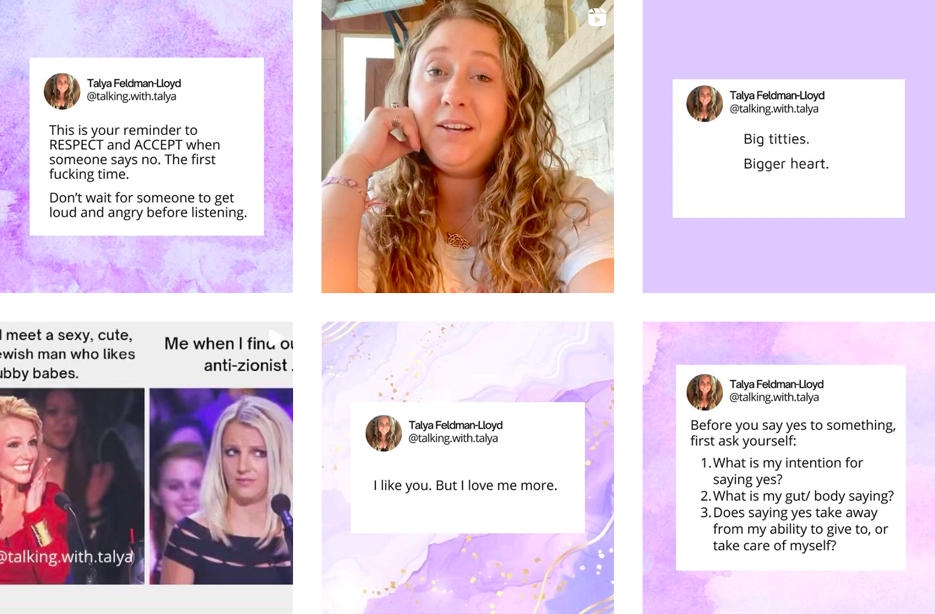What I Offer
Consulting and Advocacy for Academic Accommodation
Do you struggle with mental health, and/ or learning disabilities, and require academic accommodation, but have no clue where to start or who to talk to, in order to receive appropriate support?
Not to worry – that’s why I’m here.
Did you know that educational institutions have a legal obligation to provide students with “disabilities” appropriate academic accommodations? And that the institutions have to accommodate the individual and their unique needs, rather than the individual accommodate what the school prefers.
*Click here to see how “disability” is defined by the Ontario Human Rights Commission “Disability” Defined
As someone who has mental health diagnoses and learning disabilities, and who is not the most academically inclined, I constantly had to navigate and challenge my school systems in order to ensure I received the accommodations I was legally entitled to, and that were incredibly necessary for my academic success. And I did just that.
Let me help you create a system that works for you, so that you can do the same.
Academic Accommodations
Academic Accommodations are special teaching or assessment strategies, human supports, and/or individualized equipment (ie: technology) that are implemented in order to address and reduce specific barriers in education that would otherwise negatively impact a student’s ability to learn and demonstrate learning for their grade-level.
Accommodations are often separated into three categories – Instructional accommodations, Environmental accommodations, and Assessment accommodations – which supports the student in working toward achieving regular grade expectations. Accommodations do not alter the curriculum expectations for the course.
Modifications, which are different than accommodations, are also possible. Modifications refer to changes made in grade-level expectations that differ from regular grade expectations.
When I say “academic accommodations”, I am talking about way more than simply getting extra time on a test, or writing in isolation/ a quiet room.
While yes, these are possible academic accommodations, I am here to tell you that there are MANY more possibilities. AND that students with disabilities are actually legally entitled to said accommodations, under to the Ontario Human Rights Code (the Code).
However, often institutions do not offer or suggest these alternatives on their own accord, for a variety of reasons. That’s where I come in.
My many years of personal experience, educational training, professional contacts and team of consultants, knowledge of the inner workings of school systems and policies, along with my immense passion for advocating for the underdog, and at-times feisty (yet respectful) nature, I am the person you want supporting you on this journey.
I am here to help you navigate and challenge the school system so ensure that you are academically supported in a way that works for you.
well-equipped for the task of supporting you as you navigate and challenge the school system(s). I have a strong knowledge and inner working of different academic systems and institutions, as well as very helpful professional contacts who I consult with.
The Human Rights Code
The Humans Rights Code (the Code) is a provincial law that protects all citizens from discrimination and ensures equal rights in certain areas, including housing, employment, services, etc.
Under section 1 of the Code, people with disabilities are protected from discrimination in “services,” which includes educational services that are both publicly and privately funded (ie: daycares, elementary and secondary schools, colleges and universities, etc.). This means that they are guaranteed the right to equal access and treatment in education, without discrimination based on disability.
Academic accommodations are necessary in order to ensure equal access to education for students with disabilities.
Many don’t realize that educational providers have what is called “a duty to accommodate” students with disabilities, up unto the point of undue hardship.
Psychotherapy
- Anxiety, Depression, ADHD, Bipolar, OCD, etc,
- Sexuality
- Grief and Bereavement
- Relationships
- Family Therapy
- Cognitive Behavioural Therapy (CBT)
- Spiritual Psychotherapy
- Inner Child Work
- Mindfulness
- Meditations
- Gestalt Therapy (two-chair work)
- Experiential Psychotherapy
- Self acceptance, self love, self neutrality
- Body acceptance, body neutrality, body positivity
- Suicide prevention
- Crisis prevention and intervention
ADHD Coaching
- Workshops (virtual + in-person)
- self-care
- self neutrality
- self-acceptance
- body neutrality
- boundaries
- mental health education and awareness
- sensitivity training
- sexuality and sex education
- effective communication
- self-love
- body positivity
